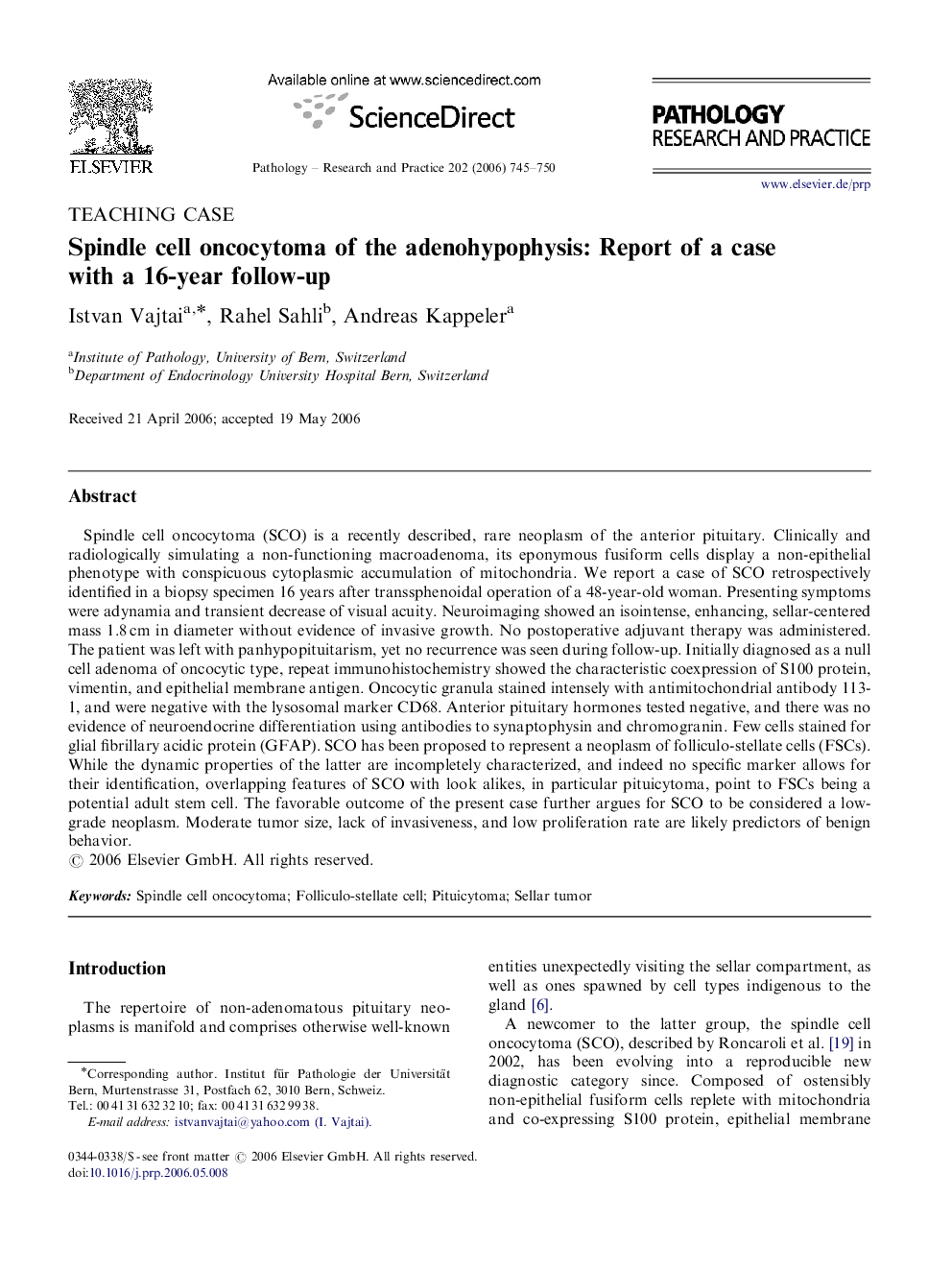| Article ID | Journal | Published Year | Pages | File Type |
|---|---|---|---|---|
| 2156543 | Pathology - Research and Practice | 2006 | 6 Pages |
Spindle cell oncocytoma (SCO) is a recently described, rare neoplasm of the anterior pituitary. Clinically and radiologically simulating a non-functioning macroadenoma, its eponymous fusiform cells display a non-epithelial phenotype with conspicuous cytoplasmic accumulation of mitochondria. We report a case of SCO retrospectively identified in a biopsy specimen 16 years after transsphenoidal operation of a 48-year-old woman. Presenting symptoms were adynamia and transient decrease of visual acuity. Neuroimaging showed an isointense, enhancing, sellar-centered mass 1.8 cm in diameter without evidence of invasive growth. No postoperative adjuvant therapy was administered. The patient was left with panhypopituitarism, yet no recurrence was seen during follow-up. Initially diagnosed as a null cell adenoma of oncocytic type, repeat immunohistochemistry showed the characteristic coexpression of S100 protein, vimentin, and epithelial membrane antigen. Oncocytic granula stained intensely with antimitochondrial antibody 113-1, and were negative with the lysosomal marker CD68. Anterior pituitary hormones tested negative, and there was no evidence of neuroendocrine differentiation using antibodies to synaptophysin and chromogranin. Few cells stained for glial fibrillary acidic protein (GFAP). SCO has been proposed to represent a neoplasm of folliculo-stellate cells (FSCs). While the dynamic properties of the latter are incompletely characterized, and indeed no specific marker allows for their identification, overlapping features of SCO with look alikes, in particular pituicytoma, point to FSCs being a potential adult stem cell. The favorable outcome of the present case further argues for SCO to be considered a low-grade neoplasm. Moderate tumor size, lack of invasiveness, and low proliferation rate are likely predictors of benign behavior.
